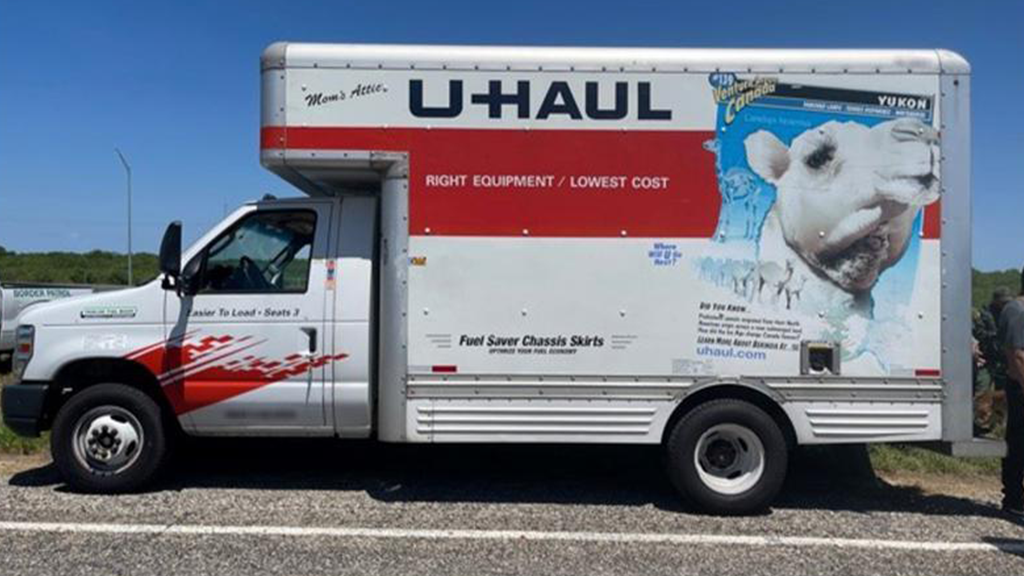In the picturesque state of Pennsylvania, known for its rich history, diverse landscapes, and charming small towns, residents enjoy a generally peaceful life. However, like anywhere, there are certain threats and unusual situations that can arise, warranting a call to the police. In 2024, it’s crucial for Pennsylvanians to be vigilant and informed about what could signal danger or a potential emergency. This article will explore various scenarios and threats that should prompt you to call the police if spotted outside your home.
Pennsylvania is a state brimming with historical significance and natural beauty, from the bustling city of Philadelphia to the serene countryside of Lancaster. While the state generally enjoys a safe environment, residents should remain vigilant for signs of trouble. Understanding what situations warrant a call to the police can help protect not only your home but also your community. This guide covers various scenarios and types of incidents that should prompt you to reach out to local law enforcement if spotted outside your residence.
Suspicious Vehicles
One of the most common signs of potential trouble is the presence of suspicious vehicles. These can include cars or trucks that appear out of place or are parked in unusual spots. In Pennsylvania, incidents involving suspicious vehicles have led to the prevention of various crimes.
For example, in Harrisburg, a series of vehicle break-ins were traced back to a specific model of van that was frequently seen in residential areas. The pattern of sightings allowed the police to investigate and ultimately apprehend the culprits.
Signs of Suspicious Vehicles:
- Vehicles parked in the same spot for an extended period
- Unfamiliar vehicles driving slowly through neighborhoods
- Cars with tinted windows or unusual modifications
If you notice a vehicle that matches these descriptions, especially if it is near your home or seems to be observing the area, it’s advisable to report it to the police. They can determine whether the vehicle is involved in any criminal activity or if it’s simply a case of an individual in need of assistance.
Unusual Behavior
Another red flag is unusual behavior by individuals outside your home. This could range from someone loitering around your property to individuals acting erratically.
In Philadelphia, there was a recent case where a resident noticed a person repeatedly circling their block at odd hours. The behavior seemed out of place and, upon reporting to the police, it was discovered that the individual was involved in a series of local thefts.
Examples of Unusual Behavior:
- Individuals lingering in the vicinity of your home without a clear purpose
- Erratic or aggressive behavior, such as shouting or running around
- Unusual interactions with other residents or vehicles
If you witness such behavior, especially if it involves repeated or aggressive actions, it’s essential to contact the police. They can assess the situation and determine if there is any immediate threat.
Potential Burglary Signs
Burglary attempts can sometimes be preceded by identifiable signs. These can include broken windows, tampered locks, or unusual activity around homes.
A noteworthy case in Pittsburgh involved a string of burglaries where perpetrators were identified due to the broken security systems and unusual behavior reported by residents. In these instances, early detection and prompt police involvement were key to preventing further crimes.
Signs of Potential Burglary:
- Broken windows or damaged locks
- Signs of forced entry, such as pry marks
- Individuals acting suspiciously around homes, especially with tools or equipment
If you observe any of these signs, especially if a burglary appears to be in progress, it is crucial to call the police immediately. They can respond quickly to prevent or address the crime.
Strange Individuals or Groups
Sometimes, groups or individuals with questionable intentions may be present in your neighborhood. This could include large groups gathering without a clear purpose or individuals with a history of criminal activity.
In Erie, a recent increase in neighborhood disturbances was traced back to a group of individuals who had previously been involved in drug-related crimes. Residents who reported these groups helped law enforcement in taking preventive actions.
Characteristics of Suspicious Individuals or Groups:
- Large groups congregating without a clear purpose
- Individuals who are known to be involved in criminal activities
- Unusual or intimidating behavior
If you encounter such individuals or groups, especially if they appear to be engaging in criminal behavior, contacting the police is essential. They can investigate and take necessary actions to ensure community safety.
Unusual Packages or Items
Packages or items left outside your home can sometimes pose a danger. This includes unexpected or suspicious packages that might be abandoned or left in strange locations.
A recent incident in Allentown involved a package that was left on a doorstep, which turned out to contain hazardous materials. The quick reporting of the package to the police led to a safe resolution and the removal of the dangerous items.
How to Identify Suspicious Packages:
- Packages left unattended in unusual places
- Packages with no return address or marked with suspicious labels
- Items that appear to be tampered with or leaking
If you come across such items, do not touch or move them. Instead, contact the police immediately, who can handle the situation safely and investigate further.
Animal Encounters
Pennsylvania is home to a variety of wildlife, some of which can become a nuisance or pose a danger when they come into contact with residential areas. Stray or wild animals can sometimes become aggressive or cause damage.
In the rural areas of Lancaster, there have been reports of aggressive coyotes threatening pets and livestock. Prompt police involvement helped manage these situations and ensured the safety of residents and their animals.
Examples of Dangerous Wildlife or Strays:
- Aggressive or unusually large stray dogs or wild animals
- Wildlife exhibiting signs of illness or aggression
- Animals causing significant damage to property
For such encounters, especially if they involve aggressive behavior or pose a risk to humans or pets, contact local animal control or the police. They can address the issue and ensure everyone’s safety.
Emerging Threats
In recent years, new threats and trends have emerged in Pennsylvania that residents should be aware of. These include increased incidents of cybercrime, sophisticated scams, and other evolving dangers.
Keeping up with local news and updates from law enforcement agencies can help you stay informed about these threats. For instance, recent increases in cybercrimes targeting local businesses have prompted law enforcement to issue warnings and provide resources for residents to protect themselves.
How to Stay Informed:
- Follow local news and updates from police departments
- Engage with community safety programs and resources
- Report any new or unusual threats to local authorities
Conclusion
Maintaining safety and security in Pennsylvania requires awareness and vigilance. By understanding and recognizing the scenarios and signs mentioned above, you can play an active role in protecting your home and community. If you encounter any of the situations discussed, don’t hesitate to contact the police. Staying alert and informed will help ensure that you, your family, and your neighbors remain safe in 2024 and beyond.
For any concerns or emergencies, always remember that local law enforcement is there to assist and safeguard your community.
This Article Includes
- 1 Suspicious Vehicles
- 2 Signs of Suspicious Vehicles:
- 3 Unusual Behavior
- 4 Examples of Unusual Behavior:
- 5 Potential Burglary Signs
- 6 Signs of Potential Burglary:
- 7 Strange Individuals or Groups
- 8 Characteristics of Suspicious Individuals or Groups:
- 9 Unusual Packages or Items
- 10 How to Identify Suspicious Packages:
- 11 Animal Encounters
- 12 Examples of Dangerous Wildlife or Strays:
- 13 Emerging Threats
- 14 How to Stay Informed:
- 15 Conclusion







